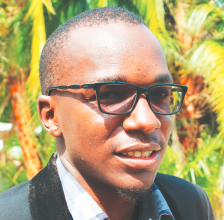A ‘stone age’ life in modern Blantyre
Adrider Tengeza, 45, lives in Bangwe Township, just two kilometres from Mudi Zone offices of the Blantyre Water Board (BWB) in Limbe.
The Mudi Zone offices were aimed at serving consumers in Kachere, Bangwe, Chigumula, Misesa and Chiwembe townships, among others.
But if asked today, Tengeza would not say how piped or potable water tastes, let alone point where she can access it.
This is despite the fact that she has lived in Bangwe Township for over 23 years.
“This area doesn’t have even a single water kiosk. I wish I could connect my house to piped water, but I’m too poor to meet the cost of connecting to the piped water,” she explains.
Bangwe is one of the most populous and informal settlements in Blantyre. Others are Ndirande, Misesa and Mbayani, just to mention a few.
In Lilongwe, the informal settlements include Namichimba in Area 23, Area 24 and Chigwirizano (Likuni) while in Mzuzu there are Mchengautuba, Chibavi and Masasa, among others.
All these townships have one thing in common; they all grapple with the problem of waterborne diseases every year owing to inadequate or lack of access to safe water and sanitation services.
It is particularly saddening to note that while the country celebrates its 50 years of independence, citizens are still stuck in pre-colonial ways of living.
For example, they draw their drinking water from unprotected wells and streams. They still defecate in the open or bushes, thereby risking their lives to waterborne diseases such as cholera and diarrhoea.
A latest study by the Sustainable Rural Growth and Development Initiative (SRGDI) into the water and sanitation sectors in Blantyre exposes serious gaps in the provision of these all-important services both in public as well as private places.
The situation puts residents at the mercy of waterborne diseases, especially during the rainy season.
SRGDI conducted the survey to, among other things, establish challenges residents are facing with respect to access and proper use of sanitation and hygiene facilities.
Speaking when he recently presented findings of the survey at Bangwe Catholic Primary School, SRGDI executive director Maynard Nyirenda said majority of households in Blantyre, particularly in the cited townships, do not have access to potable drinking water within their homesteads.
Nyirenda disclosed that this has forced residents to rely on water drawn from unprotected wells close to their houses.
“And this puts lives of people at risk of waterborne diseases such as diarrhoea, which is a major cause of deaths in children,” he said.
Nyirenda faulted BWB for failing in its mandate to provide affordable water facilities to needy residents in informal settlements.
Water is life, so they say, but when regular, safe, affordable supplies of water and sanitation services are such an expensive commodity, residents in the informal settlements will have to rely on a miracle for their survival.
It is certainly not good news because as a local consulting company, Alma Consultancy, puts it, over 60 per cent of the population in Malawi’s major cities and towns lives in informal settlements where access to clean water and sanitation services remains poor.
This is despite the fact that diarrhoea, which is caused by consuming unsafe water, accounts for an estimated 4.1 per cent of the total global burden of diseases and is responsible for the deaths of 1.8 million people every year, according to World Health Organisation (WHO).
WHO estimates that 88 per cent of that burden is attributable to unsafe water supply, sanitation and hygiene, and is mostly concentrated in children in developing countries, Malawi inclusive.
Human rights activists say clean water is a basic human right, but statistics show that only a few Malawians are connected to piped water.
This means a larger population has its rights violated through failure by government and its water boards to provide them with clean water.
Additionally, this means that Malawi has fallen by far in its efforts to meet the United Nations Millennium Development Goals (MDGs) target on water, which aims at halving by 2015 the proportion of people without sustainable access to safe drinking water and basic sanitation.
In 2009, government through its National Water Development Programme II, launched an Urban Water Supply and Sanitation Project to improve water supply and sanitation services to low income communities in urban areas.
Although Bangwe, Area 23 and Mchengautuba were some of the targeted areas, access to potable water and sanitation facilities remains a mere dream among residents in these townships, five years after the launch of the project.
This has rendered useless the fight against dysentery and other diseases resulting from use of contaminated water.
Further, government has failed to fulfil its promise to reduce long distances women and children walk to fetch water among low income earners in urban areas.
No wonder, Group Village Head (GVH) Mwamadi of Bangwe, speaking on the sidelines of an advocacy and awareness campaign on sanitation, health and water management by SRGDI two weeks ago, said she did not have an idea about the project.
“Bangwe is one of the low income areas of Blantyre. But I don’t remember hearing about a project that aimed at connecting us to potable water and improving our sanitation facilities,” she confessed.
Tengeza concurred in a separate interview, saying life would have greatly improved for residents of densely populated areas had the project borne fruits.
“We couldn’t be grappling with cholera and diarrhoea every rainy season. It’s unfortunate that we’re celebrating 50 years of independence while still stuck in the Stone Age era despite Blantyre being a city,” she complained.
While commending SRGDI for committing to sensitise residents on the need for each family to have and properly use a latrine, Tengeza asked authorities to expedite the process of constructing water kiosks if the fight against diarrhoea and cholera was to bear fruits.





